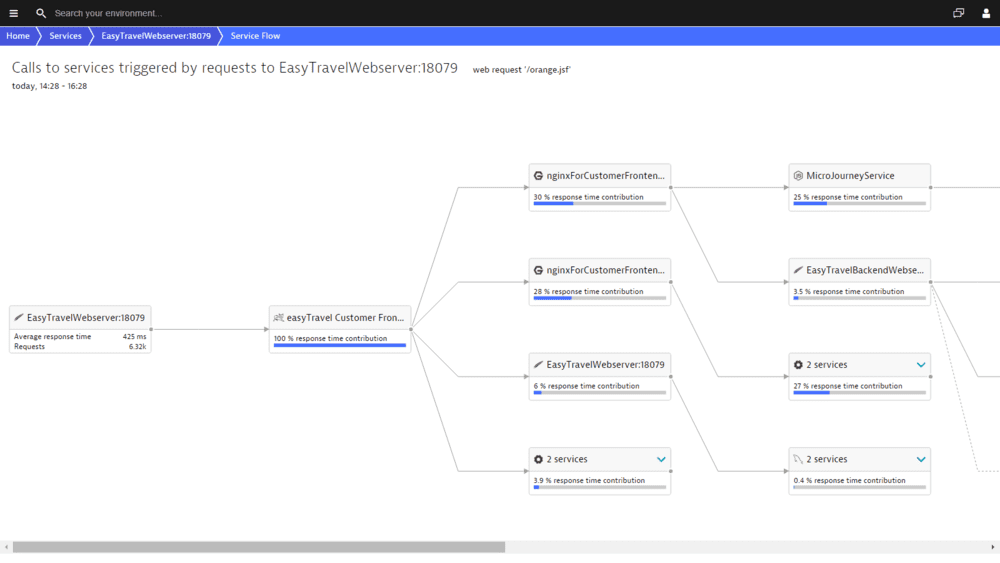


- WILDFLY VS GLASSFISH PERFORMANCE FULL
- WILDFLY VS GLASSFISH PERFORMANCE CODE
- WILDFLY VS GLASSFISH PERFORMANCE PC
WAR files automatically deploy to Glassfish, and the servlets are bundled.
WILDFLY VS GLASSFISH PERFORMANCE CODE
Deploying to Glassfish is more dynamic and if anything easier than to Tomcat in any current IDE, and there are innumerable ways of bundling your code as OSGi bundles, from Maven plugins to the dozen or so ways of doing so in Eclipse. This begs the question, of course, why not use Glassfish or Wildfly (or any other modern Java server) in the first place? The Tomcat container has more race conditions than the Paris-Dakar rally, and libs like Grizzly and Jersey are tested primarily as part of Glassfish, running in the Felix OSGI container. Ø Eventually most if not all of the libraries that comprise Glassfish or another Java server are part of the project, but running in the less-than-ideal Tomcat container, rather than a more robust, faster OSGi container such as Felix. are added to the project, which if the project uses Maven is extremely easy to do without raising questions. Ø For better performance libraries such as Grizzly HTTP, Jersey, Jackson etc. Ø At the beginning of the project, Tomcat is chosen by default, if reasons are given, they usually comprise ‘it’s simple’, ‘we don’t need more’, and a usually unstated reason - “we don’t have to mess with OSGi”. The process by which this occurs is roughly along the following lines: The pattern essentially consists of utilizing Apache Tomcat as a Java server, while pulling in most or all of the libraries that constitute a more modern Java server, such as Glassfish, JBoss Wildfly etc.
WILDFLY VS GLASSFISH PERFORMANCE FULL
This very situation happened with a noteworthy retailer only a couple of weeks back.While it is part of a larger set of anti-patterns, which one might refer to as the ‘it will do for now’ anti-pattern set, the “Tomcat” anti-pattern is particularly prevalent in my experience, and easier to describe than the full set. In a unified model, a primary server that goes down may disable each store along the east drift. On the off chance that one store goes down none of the others are influenced.
WILDFLY VS GLASSFISH PERFORMANCE PC
In the customary environment, each store in a mainstream store works its PC frameworks freely. The truth of the matter is that while centralization may enhance effectiveness and expense, it likewise opens the entryway for exponentially expanding issues. We additionally keep on listening to the ghastliness stories of corporate PC frameworks being hacked and traded off. We as of now face a pile of protection intrusion simply in Cheapest Reseller Hosting view of the way that we utilize the Google web crawler which mines information from our machines and uses it to target us for publicizing. Be that as it may, the idea is overflowing with risks and pitfalls, not the slightest of which is close to home protection and security. This may sound like an extraordinary thought to many individuals. Your email, media player, office suite, and efficiency programming are all in the cloud. The cloud is the place every one of your applications live and work. They comprise of a changed Chrome web program which interfaces you to a cloud. Chrome OS, and its open source twin, Chromium OS, are both cloud-based working frameworks. In case you're befuddled between Chrome OS and Google's Chrome web program, don't stress that is the goal. Maybe you've heard the buildup with respect to Google's endeavor to make its own particular working framework called Chrome OS. The container on the client's work area is just a modem which join with a web centralized server where all capacity happens. In any case, with distributed Cheap VPS Hosting India computing the PC is truly non-existent. As such, the run of the mill desktop PC is an independent unit with its own particular GUI, applications, drivers, et cetera. In the most straightforward conceivable terms, distributed computing is Internet processing. The innovation I'm alluding to is distributed computing. In any case, one developing innovation has a few of us a bit anxious. We were similarly awed with HTML, Java, versatile servers, and the new tablet PC. Case in point, the Internet's blast from a modest bunch of neighborhood release sheets to a worldwide system was generally acknowledged by nerds the world over. Those of us in the IT world are for the most part for all the most recent improvements in the PC innovation field.


 0 kommentar(er)
0 kommentar(er)
